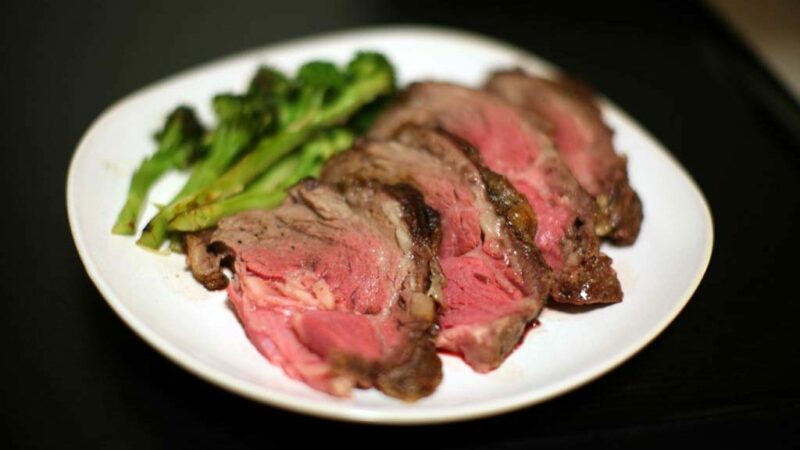When you’re feeling under the weather, it’s important to nourish your body with the right foods. Boiled eggs can be a nutritious option for those who are sick. They are packed with protein, vitamins, and minerals that can help support your immune system. However, it’s important to consider a few factors before incorporating boiled eggs into your diet when you’re sick.
Key Takeaways:
- Boiled eggs can be a nutritious choice when you’re sick.
- They are rich in protein, vitamins, and minerals that can support your immune system.
- However, it’s important to consider individual circumstances such as allergies or digestive issues.
- Consult with a healthcare professional for personalized advice.
- Remember to prioritize a varied diet and stay hydrated when you’re not feeling well.
Nutritional Benefits of Boiled Eggs
Boiled eggs are a nutritional powerhouse, offering a range of benefits for your health. One of the primary advantages of boiled eggs is their high protein content. Protein is essential for repairing and building tissues, as well as supporting a strong immune system. By incorporating boiled eggs into your diet when you’re sick, you can provide your body with the necessary nutrients to aid in recovery.
Not only are boiled eggs rich in protein, but they also contain important vitamins and minerals. Vitamin D, for example, is crucial for bone health and immune function. Vitamin B12 is necessary for the production of red blood cells and the proper functioning of the nervous system. Selenium is an antioxidant that helps protect your body against oxidative stress, while choline supports brain health and metabolism.
Including boiled eggs in your diet when you’re sick can provide you with these vital nutrients, helping to support overall health and well-being. However, it’s important to remember that individual dietary needs may vary, and it’s always advisable to consult with a healthcare professional or registered dietitian for personalized advice.
| Nutrients | Amount per 100g |
|---|---|
| Protein | 6.3g |
| Vitamin D | 0.88mcg |
| Vitamin B12 | 0.89mcg |
| Selenium | 15.8mcg |
| Choline | 126mg |
These nutritional values are approximate and may vary slightly depending on the size of the boiled egg. Nevertheless, they give you a good idea of the key nutrients present in boiled eggs.
Easy to Digest
One advantage of boiled eggs is that they are easy to digest. The cooking process breaks down proteins, making them more easily absorbed by the body. This can be especially beneficial when you’re sick, as your digestive system may be compromised. Boiled eggs provide a gentle source of protein that can be easily tolerated by a sensitive stomach. They are also low in fiber, which can help reduce any potential digestive discomfort.
When incorporating boiled eggs into your diet while you’re sick, it’s important to listen to your body. If you experience any discomfort or digestive issues after eating boiled eggs, it may be best to avoid them. Everyone’s digestive system is different, and what works for one person may not work for another. It’s always important to pay attention to your own body’s signals and adjust your diet accordingly.
To ensure the easy digestibility of boiled eggs, it’s recommended to cook them thoroughly and avoid overcooking. Overcooked eggs can be tougher and more difficult to digest. Aim for a soft-boiled or hard-boiled consistency, depending on your preference. If you’re unsure about the level of doneness, you can use a kitchen thermometer to ensure the eggs are cooked to a safe temperature of 160°F (71°C).
Table: Cooking Time for Boiled Eggs
| Boiled Egg Consistency | Cooking Time |
|---|---|
| Soft-boiled | 4-6 minutes |
| Medium-boiled | 6-8 minutes |
| Hard-boiled | 9-12 minutes |
In summary, boiled eggs can be an easy-to-digest option when you’re sick. They provide a good source of protein and can be gentle on the stomach. However, it’s important to listen to your body and avoid them if you experience any discomfort. Cook the eggs to your desired consistency, ensuring they are cooked thoroughly but not overdone. Adjust your diet based on your own digestive needs and consult with a healthcare professional for personalized advice.
Considerations for People with Specific Conditions
While boiled eggs can generally be consumed when you’re sick, there are a few considerations for people with specific conditions. It’s important to be mindful of these factors to ensure your health and well-being.
1. Egg Allergies or Sensitivities
If you have an egg allergy or sensitivity, it’s crucial to avoid consuming boiled eggs when you’re sick. Even though the eggs are cooked, they can still trigger allergic reactions and worsen your symptoms. It’s best to explore alternative protein sources that don’t pose a risk to your health.
2. Gastrointestinal Issues
If you’re experiencing gastrointestinal issues such as stomach pain, bloating, or diarrhea, it may be best to avoid boiled eggs until you feel better. Eggs can be harder to digest for some individuals, and consuming them during illness can exacerbate digestive discomfort. Prioritize easily digestible foods like steamed vegetables or clear broth instead.
3. Digestive Discomfort
When you’re sick, your digestive system may be compromised, leading to discomfort and sensitivity. If you find that boiled eggs are causing digestive issues or discomfort, it’s essential to listen to your body and refrain from consuming them. Focus on nourishing foods that are gentle on your stomach and easy to digest.
Always consult with your healthcare provider for personalized advice on your specific condition. They can provide guidance tailored to your needs and ensure you make informed decisions about the foods you consume when you’re sick.
| Condition | Boiled Egg Consumption |
|---|---|
| Egg Allergy or Sensitivity | Avoid |
| Gastrointestinal Issues | Avoid if experiencing discomfort |
| Digestive Discomfort | Avoid if causing issues |
Potential Risks of Eating Boiled Eggs When Sick
While boiled eggs can provide nutritional benefits, there are potential risks to consider when consuming them while sick. If the eggs have not been stored properly or cooked thoroughly, there is a risk of foodborne illnesses such as salmonella. It’s important to ensure that your eggs are cooked to a safe temperature of 160°F (71°C) and stored in the refrigerator. If you’re unsure about the safety of your eggs, it’s best to err on the side of caution and avoid consuming them.
When it comes to food safety, proper handling and preparation are essential. Salmonella, a common bacteria found in eggs, can cause symptoms such as diarrhea, fever, and abdominal cramps. It’s important to remember that even visually clean eggs can still be contaminated. Therefore, it’s crucial to follow these guidelines:
- Buy fresh eggs from a reputable source.
- Always check the expiration date on the carton.
- Store eggs in the refrigerator at or below 40°F (4°C) to slow down bacterial growth.
- Wash your hands before and after handling eggs.
- Cook eggs thoroughly until the yolks and whites are firm.
- Avoid eating dishes containing raw or undercooked eggs, such as homemade Caesar dressing or hollandaise sauce.
By following these guidelines, you can reduce the risk of foodborne illnesses associated with consuming boiled eggs when sick. Remember, it’s always better to prioritize food safety and choose alternatives if you have any doubts.
| Safe Internal Temperature for Eggs | Description |
|---|---|
| 160°F (71°C) | Eggs are fully cooked and safe to eat, killing any potential bacteria. |
| 145°F (63°C) | Eggs are safe to eat for healthy individuals, but may not eliminate all bacteria for those with weaker immune systems. |
| Less than 145°F (63°C) | Eggs are not fully cooked and may pose a higher risk of foodborne illnesses. |
Other Food Options for When You’re Sick
While boiled eggs can be a nutritious choice for those who are sick, it’s important to have a varied diet to ensure you’re getting all the necessary nutrients. Here are some other food options that are gentle on the stomach and provide essential nutrients:
Cleansing Broth
Clear broth, such as chicken or vegetable broth, can be soothing and nourishing for the body. It’s easy to digest and can provide hydration and electrolytes.
Healing Herbal Teas
Warm herbal teas, like chamomile or ginger tea, can help soothe an upset stomach and provide comfort. They can also have natural healing properties that promote relaxation and reduce inflammation.
Steamed Vegetables
Steamed vegetables, such as carrots, broccoli, or cauliflower, are easy to digest and packed with vitamins and minerals. They can provide essential nutrients while being gentle on the stomach.
Easy-to-Digest Grains
Easily digestible grains like rice or oatmeal can provide energy and fiber without putting strain on the digestive system. They can be cooked with broth for added flavor and nutrition.
Remember, when you’re sick, it’s important to stay hydrated by drinking plenty of fluids. Opt for water, herbal teas, and clear liquids to keep your body hydrated. Additionally, listen to your body and eat small, frequent meals if you have a reduced appetite. And as always, consult with a healthcare professional or registered dietitian for personalized advice based on your specific condition and needs.
| Food Option | Benefits |
|---|---|
| Cleansing Broth | Provides hydration and electrolytes |
| Healing Herbal Teas | Soothes upset stomach and reduces inflammation |
| Steamed Vegetables | Rich in vitamins and minerals, easy to digest |
| Easy-to-Digest Grains | Provides energy and fiber without straining the digestive system |
Expert Advice for Eating When You’re Sick
When it comes to eating when you’re sick, it’s always wise to seek expert advice from healthcare professionals or registered dietitians. They can provide personalized recommendations based on your specific condition and needs. Here are a few key points to consider:
1. Listen to your body
Pay attention to how your body reacts to different foods. If certain foods make you feel worse or exacerbate your symptoms, it’s best to avoid them. Trust your instincts and make choices that promote comfort and well-being. Remember, everyone’s body is different, and what works for one person may not work for another.
2. Stay hydrated
Drinking plenty of fluids is essential for staying hydrated and supporting overall recovery. Water, herbal teas, clear broths, and electrolyte-rich beverages can help replenish fluids and prevent dehydration. Aim to consume fluids regularly throughout the day to maintain optimal hydration levels.
3. Consider your symptoms
Take into account the specific symptoms you’re experiencing when choosing what to eat. For example, if you have a sore throat, consuming warm soothing foods like broths or mashed potatoes can provide relief. If you have an upset stomach, opting for bland, easy-to-digest foods like boiled rice or steamed vegetables may be beneficial. Tailor your food choices to address your symptoms and promote healing.
Remember, the guidance provided by healthcare professionals is invaluable in ensuring you make the right choices for your individual circumstances. They can help you navigate any dietary restrictions or concerns you may have, and provide you with a plan that supports your recovery. Consulting with an expert not only ensures you’re making informed decisions but also gives you peace of mind during your illness.
| Key Points for Eating When You’re Sick |
|---|
| Listen to your body and avoid foods that worsen your symptoms. |
| Stay hydrated by drinking fluids regularly. |
| Consider your specific symptoms when choosing what to eat. |
| Consult with healthcare professionals for personalized advice. |
Conclusion
In conclusion, incorporating boiled eggs into your diet when you’re sick can be a nutritious choice. They offer a rich source of protein, vitamins, and minerals that can support your immune system and aid in recovery.
However, it’s crucial to consider individual circumstances before consuming boiled eggs. If you have specific conditions such as egg allergies or gastrointestinal issues, it’s best to avoid them. Always consult with a healthcare professional or registered dietitian for personalized advice.
Remember, while boiled eggs can be beneficial, it’s important to maintain a varied diet to ensure you’re getting all the necessary nutrients. Stay hydrated by drinking plenty of fluids and consider other gentle options like clear broth, warm herbal teas, steamed vegetables, and easily digestible grains.
Ultimately, when it comes to eating when you’re sick, listen to your body and prioritize your health. With the right choices and expert guidance, you can nourish your body and support your recovery.
FAQ
Q: Can I eat boiled eggs when I am sick?
A: Boiled eggs can be a nutritious option when you’re sick. They provide protein, vitamins, and minerals that can support your immune system and aid in recovery. However, it’s important to consider individual circumstances and consult with a healthcare professional for personalized advice.
Q: What are the nutritional benefits of boiled eggs?
A: Boiled eggs are packed with protein, vitamin D, vitamin B12, selenium, and choline. These nutrients can support overall health and aid in recovery.
Q: Are boiled eggs easy to digest?
A: Yes, boiled eggs are easy to digest. The cooking process breaks down proteins, making them more easily absorbed by the body. However, it’s important to listen to your body and stop eating if you experience any discomfort or digestive issues.
Q: Should people with specific conditions avoid boiled eggs when sick?
A: Individuals with egg allergies or sensitivities should avoid consuming boiled eggs. Additionally, if you have gastrointestinal issues or are experiencing digestive discomfort, it may be best to avoid eggs until you feel better. Always consult with your healthcare provider for personalized advice.
Q: What are the potential risks of eating boiled eggs when sick?
A: If the eggs have not been stored properly or cooked thoroughly, there is a risk of foodborne illnesses such as salmonella. It’s important to ensure that your eggs are cooked to a safe temperature of 160°F (71°C) and stored in the refrigerator.
Q: What are other food options for when you’re sick?
A: Other gentle and easily digestible food options include clear broth, warm herbal teas, steamed vegetables, and easily digestible grains like rice or oatmeal. Staying hydrated by drinking plenty of fluids is also important.
Q: Should I consult with an expert before changing my diet when I’m sick?
A: Yes, it’s always a good idea to consult with a healthcare professional or registered dietitian before making any major dietary changes, especially when you’re sick. They can provide personalized advice based on your specific condition and needs.
Q: Is it safe to conclude that boiled eggs are a good choice when sick?
A: While boiled eggs can be a nutritious choice, it’s important to have a varied diet to ensure you’re getting all the necessary nutrients. It’s best to consider individual circumstances and consult with a healthcare professional for personalized advice.






